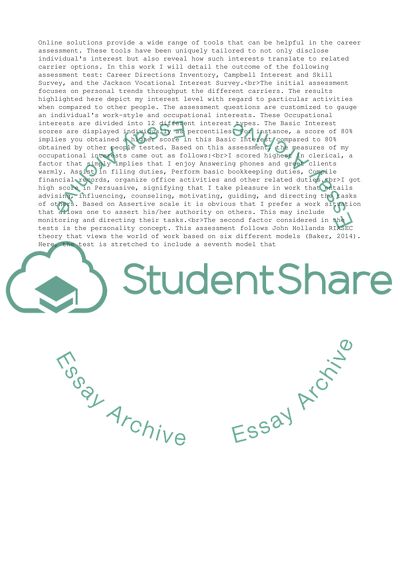Cite this document
(“Career Exploration Assignment Example | Topics and Well Written Essays - 1000 words”, n.d.)
Retrieved from https://studentshare.org/management/1637506-career-exploration
Retrieved from https://studentshare.org/management/1637506-career-exploration
(Career Exploration Assignment Example | Topics and Well Written Essays - 1000 Words)
https://studentshare.org/management/1637506-career-exploration.
https://studentshare.org/management/1637506-career-exploration.
“Career Exploration Assignment Example | Topics and Well Written Essays - 1000 Words”, n.d. https://studentshare.org/management/1637506-career-exploration.


